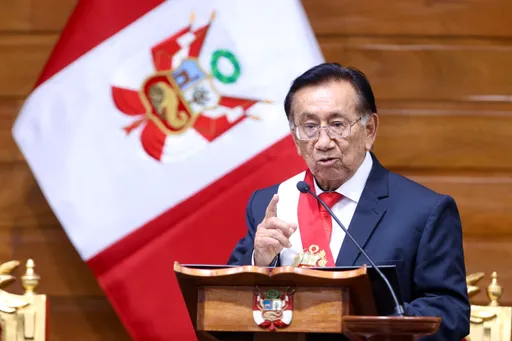The Palestinian Monetary Authority (PMA), Palestine’s de facto central bank, is looking into the development of a digital currency, according to a Bloomberg report last Thursday.
PMA Governor Geras Milhem said two studies on cryptocurrencies are underway, with the aim of eventually using a digital currency for both domestic and international payments.
TRT World reached out to the PMA, but it chose not disclose any further details.
Palestinians do not have a sovereign currency, and the Palestinian economy primarily relies on the Israeli shekel for day-to-day transactions, with the Jordanian dinar and US dollar acting as stores of value.
Ideally, a digital currency would work to reduce Palestine’s dependence on the Israeli shekel, which it has relied on since signing the 1994 Paris Protocol on Economic Relations with Israel. As part of the deal, Palestine agreed not to issue its own currency.
The consideration of a central bank digital currency (CBDC) puts Palestine in league with other major states like China and Sweden, which have begun rolling out their own CBDC projects.
However, some economic analysts have expressed uncertainty about the feasibility of a Palestinian digital currency.
For Raja Khalidi, Director of the Palestine Economic Policy Research Institute, without any clear idea of what the PMA is mulling – a Palestinian cryptocurrency for market circulation, a CBDC which can serve inter-bank flows, or a more advanced version of digital payment schemes currently being developed – the discussion is hypothetical.
“We do not know what stage the PMA study has reached, and what prompted it,” Khalidi tells TRT World.
“Is it intended to somehow absorb the high levels of circulation of Israeli shekels in Palestinian markets, or to be used as a store of value, and eventually exchange?”
Or, he says, it could be “a means to stake out a symbolic Palestinian monetary identity."
Khalidi cautions that digitisation of the financial sector – which is gradually proceeding in Palestine – is a different challenge compared to monetary digitisation.
He believes the macroeconomic conditions that exist in Palestine are not conducive for the issuance of a digital currency.
Supplying a digital currency that people can use for transactions and store of value is “unadvisable” he argues, and “risky under current political configuration with structural economic distortions and absent of sovereignty or an autonomous Palestinian macroeconomic space.”
Zayne Abudaka, Director of Research at tech consultancy and startup studio Momentum Labs, also has some reservations.
Abudaka tells TRT World that a Palestinian currency, digital or otherwise, might turn out to be a bad idea due to “donor-dependency, lack of checks and balances on executive power, and without control over most of the land area, borders, trade and government budget.”
While a digital currency theoretically could be a solution for a host of monetary problems Palestinians suffer from, he viewed the PMA’s announcement as more of a “political position than a real policy option.”
And even if authorities were to launch a digital token, several obstacles will need to be navigated.
One would be enforcement in an economy marked by a high degree of cash reliance combined with a dependency on the inflow of funds from abroad – especially Israel.
“Much of the West Bank’s income comes from Palestinian workers in Israel who are paid in Israeli shekels in cash,” Abudaka said.
Questions over how a new currency would be protected, and financial stability maintained without the PMA being truly independence from the executive branch of the government, are pertinent as well.
And even if these issues are solved, getting other actors onboard with recognising a new currency outside the West Bank and Gaza will not be simple.
“Israel (and to a lesser degree Jordan) are currently benefiting from their currencies being used in the West Bank and Gaza. Why would they change that?” Abudaka added.
Lacking monetary sovereignty
When it was signed in 1994, the Paris Protocol was meant to last for five years with the expectation of a two-state solution being reached. Nearly three decades later, with a large stretch of Palestine under an Israeli military blockade, the Palestinian economy remains monetarily reliant on Israel.
The protocol effectively regulates economic relations between Israel and the Palestinian Authority (PA). It established a customs union between Israel and the West Bank and Gaza, whereby the two parties apply the same tariff policy on trade with third countries and maintain free trade on all goods between them.
Procedurally, there are specific arrangements whereby the Israeli government collects import taxes on Palestinian trade with third countries and shares them with the PA, and sets up a mechanism for the collection of indirect taxes (VAT) on bilateral trade between Israel and the PA.
The Israeli government is obliged to transfer these dues to the PA on a monthly basis, which constitute the bulk of so-called clearance revenues for the PA and are a key source of public revenues – and critical to the stability of economic conditions in the Palestinian territories.
According to data published by the PA’s finance ministry, domestic revenues accounted for an 8-9 percent share of GDP between 1996 and 2019, while clearance revenues rose from 10 to 14 percent.
However, the flow of clearance revenues has routinely been interrupted over the years and exploited by Israel.
Most recently, a political standoff between Israel and the PA disrupted clearance revenues lasted from May until November last year over Israel’s annexation plans in the West Bank.
Meanwhile, the Covid-19 crisis has only further compounded financial sector risks, driving stability concerns to new highs, as the Palestinian economy contracted by 8 percent in 2020.
Given the lack of control over a monetary base, limited liquidity or capital buffers, any ability to absorb such a large economic shock and manage the financial implications of the crisis were a significant challenge for Palestinian authorities, noted the World Bank.
The end of 2020 saw a financing gap balloon to $760 million, and the PA continues to be heavily dependent on the donor community and Israel to secure additional financing.
Digital payments and crypto landscape
At the moment, Palestinian banks are awash with an abundance of shekels due to Israeli anti-money laundering laws, which prohibit large cash transactions. Israel also limits how many shekels Palestinian banks can transfer per month back into Israel, forcing them to have to borrow to cover foreign exchange payments.
Any push to develop a sovereign digital currency, then, is likely impacted by a dire economic situation on the ground. If launched, could it not provide much-needed digital payment rails for those living in the Palestinian territories?
Until now, global payment gateways like PayPal have refused to service the Palestinian market.
Abudaka points out that electronic payment systems remain extremely limited in the West Bank and Gaza because of low levels of financial inclusion and the informality of the economy. These payment systems are costly for merchants too.
International e-commerce platforms rarely ever recognise Palestinian banks or payment solutions either, and even when online products are ordered, items are unlikely to be received due to Israeli restrictions, he added.
Limited internet availability and electricity shortages in Gaza don't help the either.
“While there are increasing efforts by the PA and major corporations to push for increased use of electronic payments, it remains unclear whether these efforts will be effective in motivating adoption among wide segments of the population,” Abudaka stated..
Could the adoption of cryptocurrencies like Bitcoin – which allow users to conduct peer-to-peer transactions without an intermediary and are censorship-resistant – then prove attractive as an alternative option?
Presently, the PMA has enforced a ban on cryptocurrencies in the West Bank. In Gaza however, wars and severe blockades have pushed many towards digital employment.
“One major issue facing freelancers and the Gazan gig economy at large is severe limitations on ability to send and receive money,” said Abudaka, which led many to use “hacks” like cryptocurrencies just to be able to work.
Crypto has also proved popular with Hamas, which rules Gaza. The organisation reported a surge in Bitcoin donations during the two-week conflict with Israel last month.
Because of its illegality though, there is no way for Palestinians to upload their shekels, dollars or dinars into online crypto exchanges, since none of them operate with local banks.
Alongside high unemployment rates and long-standing trust around physical assets like cash for daily needs, volatile virtual assets like cryptocurrencies can only realistically function for cross-border transactions.























